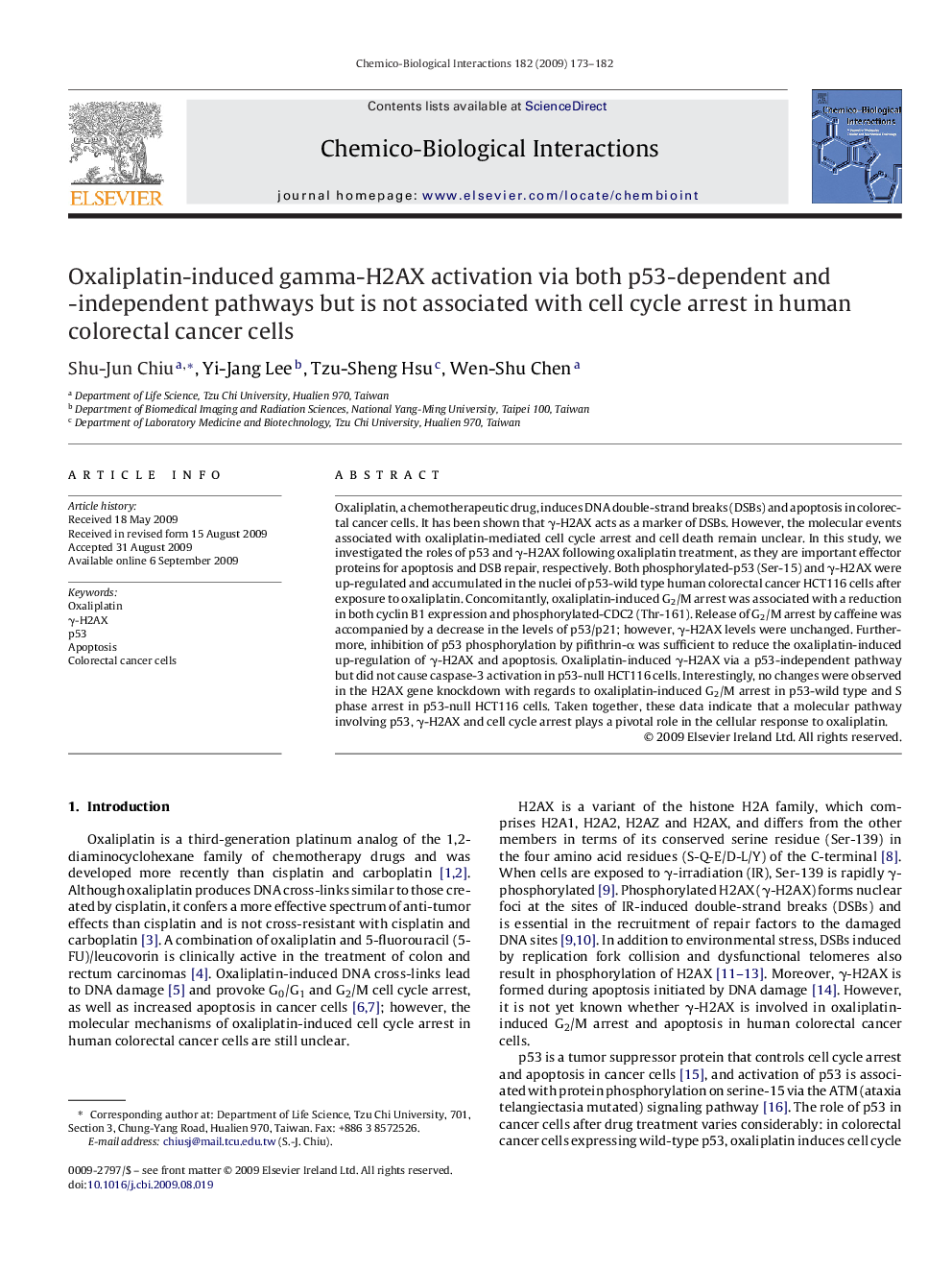| Article ID | Journal | Published Year | Pages | File Type |
|---|---|---|---|---|
| 2581192 | Chemico-Biological Interactions | 2009 | 10 Pages |
Oxaliplatin, a chemotherapeutic drug, induces DNA double-strand breaks (DSBs) and apoptosis in colorectal cancer cells. It has been shown that γ-H2AX acts as a marker of DSBs. However, the molecular events associated with oxaliplatin-mediated cell cycle arrest and cell death remain unclear. In this study, we investigated the roles of p53 and γ-H2AX following oxaliplatin treatment, as they are important effector proteins for apoptosis and DSB repair, respectively. Both phosphorylated-p53 (Ser-15) and γ-H2AX were up-regulated and accumulated in the nuclei of p53-wild type human colorectal cancer HCT116 cells after exposure to oxaliplatin. Concomitantly, oxaliplatin-induced G2/M arrest was associated with a reduction in both cyclin B1 expression and phosphorylated-CDC2 (Thr-161). Release of G2/M arrest by caffeine was accompanied by a decrease in the levels of p53/p21; however, γ-H2AX levels were unchanged. Furthermore, inhibition of p53 phosphorylation by pifithrin-α was sufficient to reduce the oxaliplatin-induced up-regulation of γ-H2AX and apoptosis. Oxaliplatin-induced γ-H2AX via a p53-independent pathway but did not cause caspase-3 activation in p53-null HCT116 cells. Interestingly, no changes were observed in the H2AX gene knockdown with regards to oxaliplatin-induced G2/M arrest in p53-wild type and S phase arrest in p53-null HCT116 cells. Taken together, these data indicate that a molecular pathway involving p53, γ-H2AX and cell cycle arrest plays a pivotal role in the cellular response to oxaliplatin.
